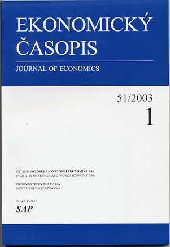Ethanol Policies and Welfare under the Pre-existing Fuel and Labor Taxes
Ethanol Policies and Welfare under the Pre-existing Fuel and Labor Taxes
Author(s): Kristen B. Cooper, Dušan DrabikSubject(s): Energy and Environmental Studies, Public Finances, Fiscal Politics / Budgeting
Published by: SAV - Slovenská akadémia vied - Ekonomický ústav SAV a Prognostický ústav SAV
Keywords: biofuel policies; blend mandate; blender’s tax credit; gasoline tax; greenhouse gas emissions; renewable fuel standard; second-best;
Summary/Abstract: We develop a tractable general equilibrium model to analyze the welfare implications of a biofuel blend mandate and consumption subsidy in the presence of pre-existing labor and fuel taxes. We find empirically that the tax interaction and revenue recycling effects are significant relative to the overall costs of the policies and previous partial equilibrium studies. We find that removing the tax credit used in combination with a binding mandate – which mirrors the expiration of the U.S. blender’s tax credit at the end of 2011 – yields a net welfare gain of only USD 9 million; this is significantly less than the welfare gain of USD 357 million attributable to fiscal interaction effects. This interesting result is due to the binding nature of the mandate. We find that the welfare cost of the blend mandate alone is USD 8.3 billion, which includes a tax interaction effect of USD 1.54 billion. We also find empirically that the tax credit is welfare superior to the mandate for a given level of ethanol consumption because the fuel tax is above the external costs of greenhouse gas emissions. This result is robust to the presence or absence of the labor tax.
Journal: Ekonomický časopis
- Issue Year: 67/2019
- Issue No: 08
- Page Range: 791-810
- Page Count: 20
- Language: English

